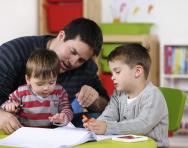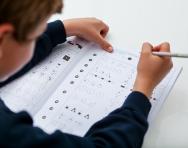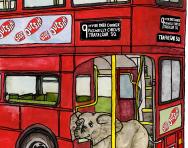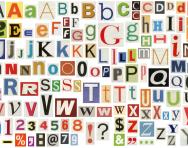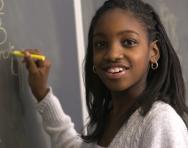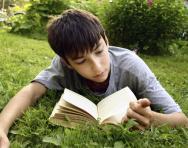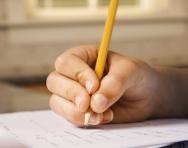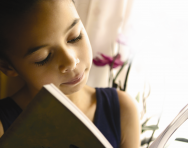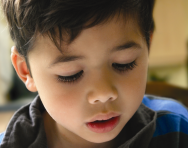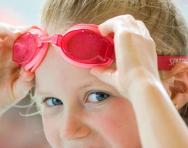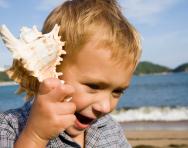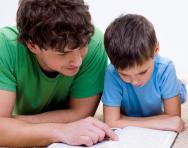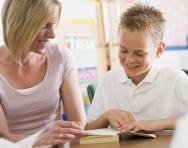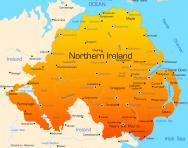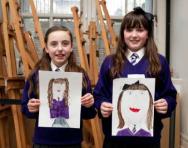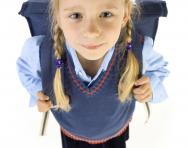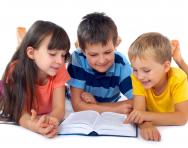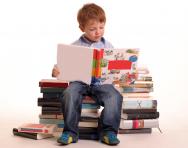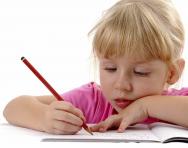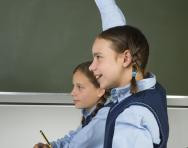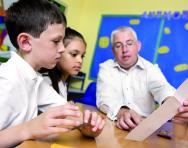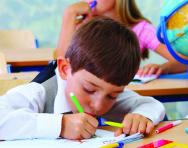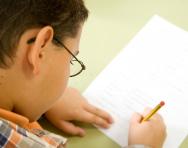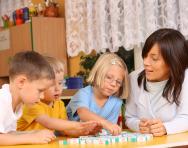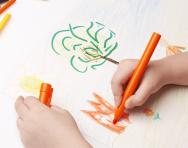School life articles
Siblings and homework: how to survive
Does your pre-schooler play havoc during his older sibling’s homework time? Is getting the reading, writing and spelling done a military operation every evening? Lucy Dimbylow asked experts and mums for their coping strategies.
What is non-verbal reasoning?
A major part of most secondary school selection and 11+ exams, as well as Year 7 CATs, non-verbal reasoning can be a tricky skill to master. We explain what non-verbal reasoning tests involve, and how you can help your child at home.
3 brilliant London excursions for primary school children
A trip to London is a great way to see history. With almost every stone soaked in stories of the past, a day in the capital is a great way to make KS1 and KS2 history learning come alive. There are elements from every period of London’s past still visible in the city today if you know where to look – Francesca Fenn from Step Outside guides suggests a few things to see and do that bring the primary history curriculum to life.
What is verbal reasoning?
Verbal reasoning tests are a key part of most secondary school selection and 11+ exams, as well as Year 7 CATs – but your child won’t necessarily be taught the skill at school. We explain just what verbal reasoning involves, and how you can help them prepare for their test.
Computer coding for kids
Could your child be a future computer programmer? It might sound unlikely, but teaching children coding is becoming more commonplace – yes, even in primary schools. So what do you need to know about helping your budding Bill Gates (or twenty-first century Ada Lovelace) to grasp this complex skill? Lucy Dimbylow finds out.
What does gifted and talented mean?
Gifted and talented, more able, most able, high learning potential… We explain the terms that are used to describe high-flying kids, and how you can tell if your child is one.
Supporting your gifted child at home and at school
Help your child reach their full potential with strategies and suggestions to support them in and out of school.
KS2 SATs in 2015: what parents need to know
KS2 SATs have changed completely over the last few years. We explain the process for 2015 and what the new plans are for the Y6 assessments, including the new KS2 Grammar, punctuation and spelling test, following Lord Bew's review.
How to improve your child’s reading skills in KS1
Parents naturally want their child to read to the best of their ability, but often aren’t sure how to help them build on the skills they learn in class. Primary teacher Phoebe Doyle offers some expert tips on what your child needs to know to move to the next reading level.
School reading schemes explained
Ask any parent of a Reception child about Biff, Chip and Kipper, and they’ll know exactly who you’re talking about. But just how do primary school reading schemes work, and how can you tell if your child is progressing at the right rate? Lucy Dimbylow puts these questions to the teachers who use reading schemes in the classroom.
Help! My child doesn’t want to go on school swimming lessons
Students in primary school are required to learn to swim, which is a difficult part of the curriculum for water-shy children to float through. Be prepared by finding out what the learning targets are, what responsibilities your school has, and how to help your child feel confident about taking the plunge.
5 ways to teach relaxation skills to your child
Knowing how to keep calm in emotionally difficult situations is an important life skill that’s never too early to learn. Even if you don’t feel you’ve mastered it yourself, you can still help your child manage their stress levels – and perhaps improve your own stress management in the process. Educational psychologist Lisa Gupta lends her top tips for parents.
Reading comprehension explained for parents
Once your child can read they’ll be working on understanding what they read and really engaging with words in their literacy lessons. Reading comprehension is also a big part of SATs. Teacher Alice Hart explains how you can help boost your child’s skills at home.
Teachers’ top 10 classroom discipline tricks
Does every homework session end in tears and tantrums? Or are you losing sleep over getting your child to learn their spellings? Lucy Dimbylow asked the people who manage 30 children at a time (gulp!) – teachers and teaching assistants – to share their tried and tested tricks.
School admissions appeals panel hearings: a step-by-step guide
After you’ve sent in your appeals form to try to reverse a school’s decision and admit your child, you’ll be able to present your case in front of a panel. Read on to find out what happens in appeals panel hearings, and how to gather all the essential details you need.
School admissions appeals forms: a step-by-step guide
If you’ve just found out that your child hasn’t got a place in the school they wanted, the good news is that you can appeal the decision. Read our comprehensive guide on how to write a good appeals form and what information you need to include.
An overview of the English education system
A parents' guide to the key stages and assessments within the structure of the education system in England.
An overview of the Scottish education system
How does the school education system work in Scotland? What are the differences between the National Curriculum and the Curriculum for Excellence? We explain how students are assessed within both systems in the UK.
An overview of the Welsh education system
A quick guide for parents about how the education system in Wales is structured, plus information about the National Reading and Numeracy Tests and the new curriculum for Wales, due to be introduced from nursery to Year 7 in 2022.
An overview of the Northern Irish educational system
Understand more about the curriculum used in Northern Ireland and how students are assessed with this brief guide.
13 ways to get children excited about geography
Boost your child’s natural curiosity about the world around us with some at-home geography fun. Teacher Jenny Cooke, creator of the Oddizzi website for primary school learners, shares her wanderlust tips to help you turn a rainy afternoon into an exotic adventure.
What your child can learn from doing a self portrait
Children often draw pictures of themselves, along with friends and family. Self portraits are actually a key part of learning and personal development, so provide the paper, pencils and opportunity for your child to have a go.
What is ‘magic e’ or a split digraph?
The way children learn to spell using phonics and phonetic terminology can cause utter bewilderment to parents trying their best to help at home. Primary teacher Phoebe Doyle is on hand to explain the ‘magic e’, or split digraph.
The parents’ guide to school trips
It feels like five minutes ago that you were peeling a tearful child off your leg at the school gates; now it’s your turn to weep at the thought of them going on a residential trip! We answer your questions – and ease your worries – about residential visits. By Lucy Dimbylow
How to keep your child safe online
With technology advancing faster and faster, parents are finding it more and more difficult to stay on top of how their children are using the internet. We spoke to mum and internet-safety guru Pamela Whitby about what you can do to protect your child online.
11 things parents need to know about the National Curriculum
It’s the basis for what your child learns every day, but what exactly is the National Curriculum and what does it teach? Education writer and primary teacher Phoebe Doyle offers some clarity.
Book-bored to bookworm: expert tips to get your child reading
Worried that your child always chooses screen time over books? Mum and teacher Phoebe Doyle asks the experts about turning your child into a busy bookworm.
Your KS1 SATs questions answered
KS1 SATs are no longer compulsory, but they may still be administered by some schools and it's likey that most parents have heard of them. We answer the questions whirling around in parents’ heads about what KS1 SATs are, if and when they’ll be administered in 2024 and how you can help your child reach their full potential.
How to create a reading-friendly home
Switch off the screens and help make reading a fun, relaxing and engaging pastime for your child by implementing these expert tips from primary school teacher and parent Phoebe Doyle.
Penpals: an engaging and lifelong learning activity
Revive the fading practice of letter-writing for your child through one of the penpal schemes available for students – not only can they practice penmanship, but they may make a friend for life!
Raising bilingual children
Like many skills, it’s best to start learning two languages as young as possible, but it’s not uncommon for parents to run into a few difficulties when raising bilingual children. TheSchoolRun offers advice and tips from parents who have first-hand experience to share.
How to plan a great year: achieving ideas for every month
Help your child be their best every month of the year! Follow these top goal-achieving tips from child development expert and bestselling author, Bernadette Tynan.
What your child learns in Year 6 maths, English and science
Year 6 means the next round of SATs exams! Start revising by knowing what the learning targets are for the new year, reviewing what was taught in Years 3, 4 and 5, and giving your child SATs practice papers and past exams.
What your child learns in Year 5 maths, English and science
Understanding the new things your child will be learning in Year 5 can prepare both of you for the months ahead, and make homework sessions much easier. Read our quick guide to Year 5 maths, English and science to be ready for the new challenges.
What your child learns in Year 4 maths, English and science
Help your child prepare for the concepts and topics covered in Year 4 by knowing ahead of time what they’ll be learning in class.
What your child learns in Year 3 maths, English and science
Starting Year 3 also means entering a new Key Stage. Read on to find out what your child’s maths, English and science lessons will be like, and how they can keep up their studies outside of school with free Year 3 worksheets.
What your child learns in Year 2 maths, English and science
Year 2 is when your child will take their Key Stage 1 SATs exams, but what does that mean? What will they learn? And how can you help? Find out in our parents’ guide.
What your child learns in Year 1 maths, English and science
Be prepared for what your child will learn in Year 1 with our quick reference guide to the key concepts and skills they’ll cover in class – find out how you can help them at home, too!
Illusions and mind tricks: are your eyes fooling you?
Are you seeing what's really there, or is your mind tricking you? Professor Bruce Hood has three amazing illusions experiments to try, and explains more about how the brain works in his Royal Institution Christmas lecture.
What your child learns in Reception year
Understand what your child is learning in their first year of school, and find out how you can help them do their best.
